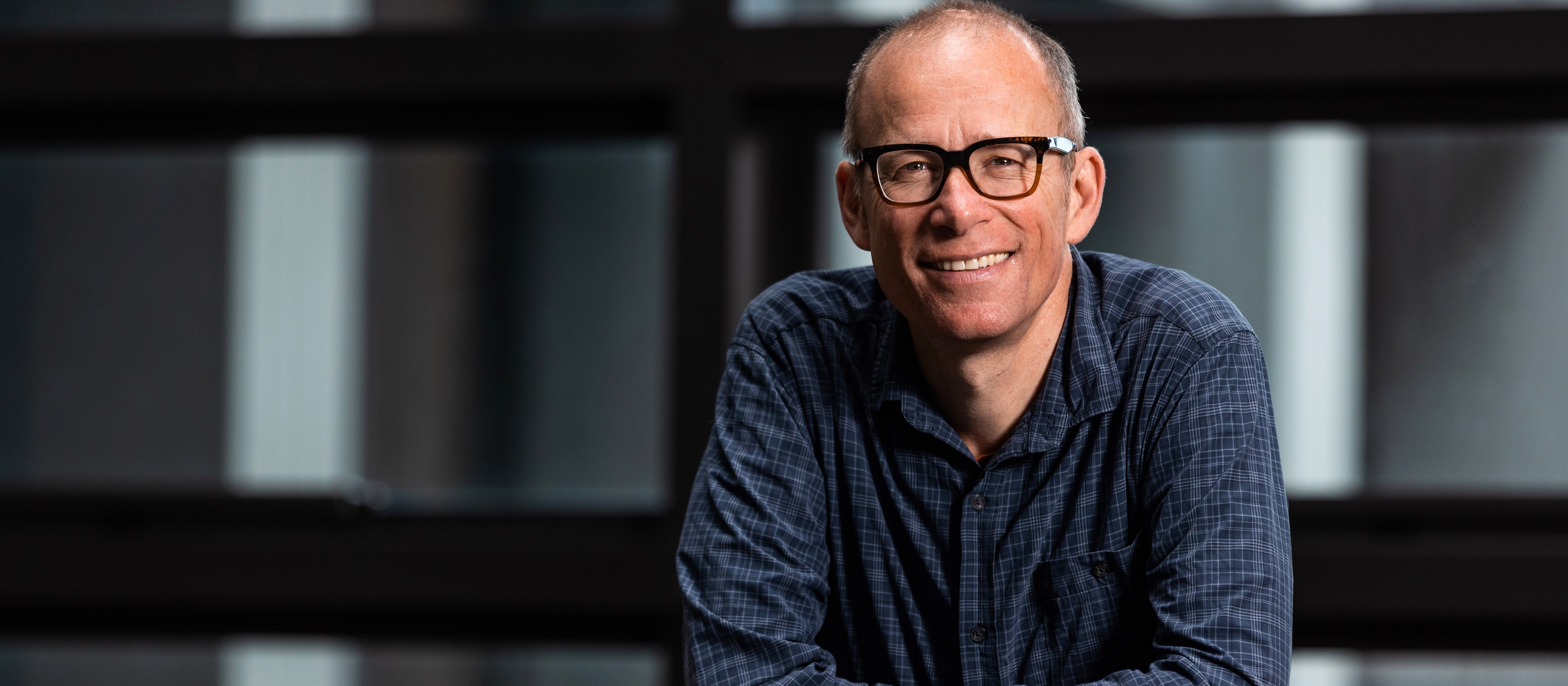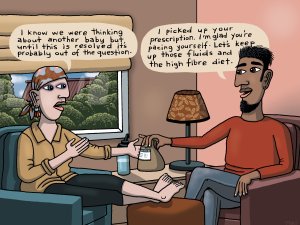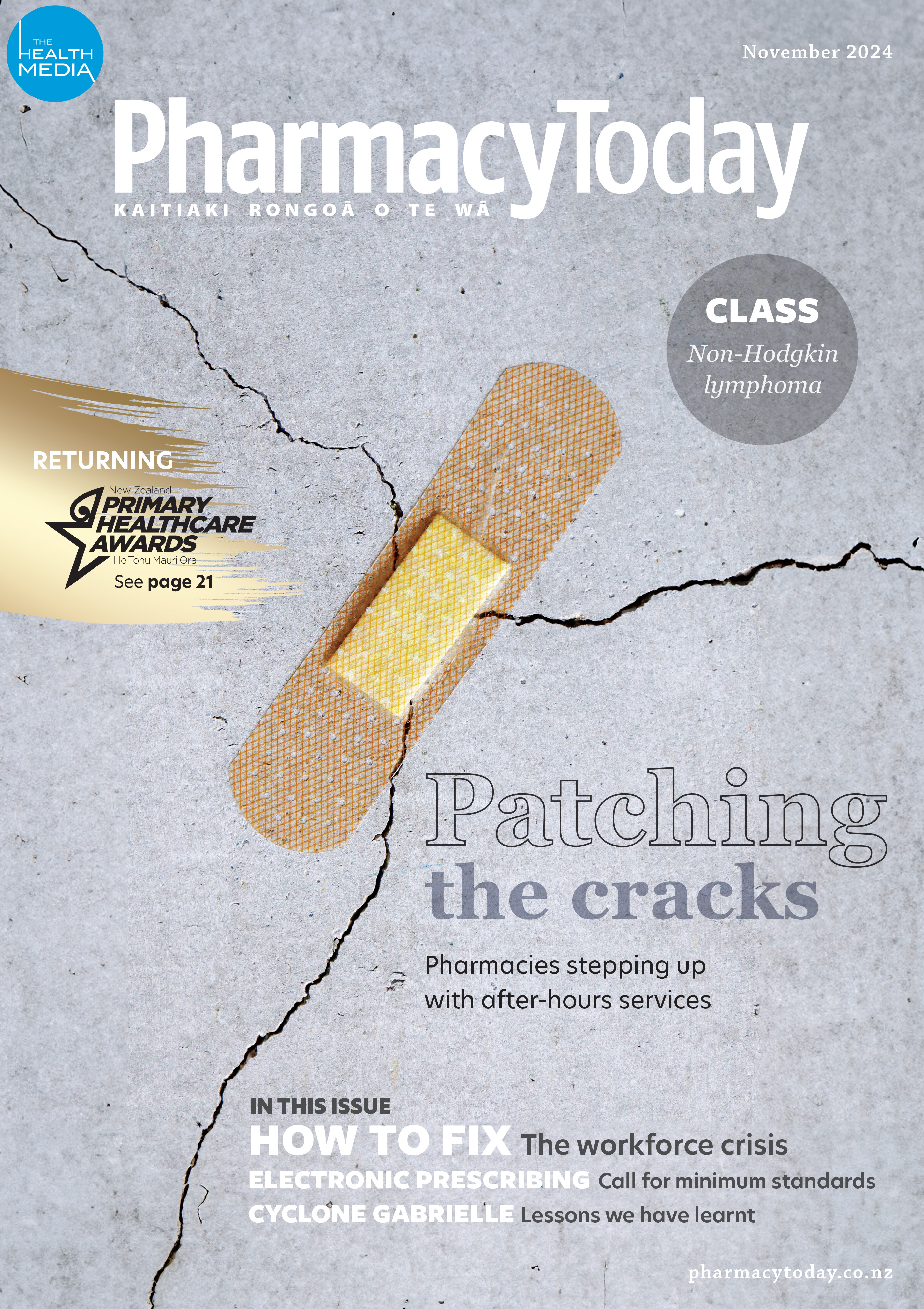Academic pharmacist Nataly Martini highlights the importance of understanding non-Hodgkin lymphoma and pharmacists’ roles in managing this condition
Drug funding: Broken promises and policy flipflops
Drug funding: Broken promises and policy flipflops

-
Despite campaign commitments, the Government had not worked on additional funding for cancer drugs until forced to by public pressure, claims medical oncologist George Laking.
-
The National Party’s commitment to fund a specific list of drugs was problematic, as it undermined Pharmac’s ability to negotiate better prices with pharmaceutical companies.
-
Despite last month’s $604 million funding boost, calls for additional resources to deliver new treatments continue, highlighting persistent healthcare challenges.
“I don’t think [the Government] understood how Pharmac works when they made the original commitment”
News that the Government had done little legwork on its promise of cancer drug funding comes as no surprise to Auckland medical oncologist George Laking.
Dr Laking (Te Whakatōhea) says he is in no doubt last month’s $604 million funding boost for Pharmac was a direct result of the public backlash to the Government's failure to provide money in Budget 2024 for the 13 new drugs promised by National in last year’s election.
In an interview with RNZ on Wednesday, associate health minister David Seymour confirmed what many in the sector may have already suspected – admitting he hadn’t done any work on the additional funding for cancer drugs until after the Budget.
Dr Laking, who is clinical director Māori at the Centre for Cancer Research and co-medical director at the Cancer Society of New Zealand, says, “To me, that suggests National hadn’t indicated to him [Mr Seymour] that it was going to go ahead with its campaign promise. I don’t think they understood how Pharmac works when they made the original commitment.
“And I don’t think they would have given uplift funding to Pharmac if there hadn’t been a public backlash.”
The National Party’s commitment to fund the list of drugs was problematic to start with as it removed Pharmac’s ability to bargain with different pharmaceutical companies to get a better price, Dr Laking says.
“There are alternatives to those drugs.”
The National Party pledged to fund 13 cancer treatments during the election if elected. As part of its campaign commitment, it said it would allocate $280 million in ring-fenced funding to Pharmac over four years to pay for the treatments “for lung, bowel, kidney, melanoma and head and neck cancers that provide significant clinical benefits and are funded in Australia but not in New Zealand”.
But when funding for the drugs was missing in Budget 2024, there was a backlash from a number of groups to what was seen as a broken promise.
In an interview on Newshub’s The AM Show on 3 June, prime minister Christopher Luxon maintained that the Government would still deliver on its campaign commitment even though the cancer drugs hadn’t been included in the Budget.
Mr Luxon blamed the non-funding for new cancer drugs on a $1.77 billion funding shortfall in Pharmac’s budget left by the previous Labour Government.
“It is taking a little bit more time than we wanted,” Luxon said. “I can reassure you work is already underway looking at a series of options of how we deliver those cancer treatments we want to be able to bring to New Zealanders.”
But the pressure on the Government was not letting up, and on 18 June, a lengthy list of cancer organisations sent an open letter to Mr Luxon, finance minister Nicola Willis and Mr Seymour about the decision not to include the drugs in Budget 2024.
It stated: “Cancer patients and advocates sat in disbelief when the Budget was announced. We have now learnt that those 13 medicines may not be funded for at least a year. Patients don’t have a year to wait and will sadly have to look at all the heartbreaking scenarios your party wanted to put an end to.”
The letter was written on behalf of organisations including Patient Voice Aotearoa, the Breast Cancer Foundation, the Cancer Society, Breast Cancer Aotearoa Coalition, Leukaemia and Blood Cancer New Zealand, Melanoma New Zealand and the Prostate Cancer Foundation New Zealand.
The Government responded on 24 June by announcing $604 million in funding for Pharmac over four years to purchase up to 54 new medicines, including 26 cancer treatments. The funding was a pre-commitment ahead of Budget 2025. When announcing the decision, health minister Shane Reti said the newly funded treatments would include seven of the 13 cancer medications promised during the election campaign.
“This means that not only will treatments for all the cancer types in the pre-election manifesto list be covered, but also a number of other treatments, including for blood cancers and other tumours.”
The overall package was “unprecedented and transformative”, he said.
Dr Laking says while the Pharmac funding boost looks big, there has been population growth in recent years and extra funding is needed. He says there will no doubt be a need for more funding to pay for the necessary workforce and infrastructure to deliver many of the new treatments.
“The drugs are only a small part of what’s actually needed. We are going to have quite a task to be able to deliver these new medicines. But it’s a step in the right direction.
“From my point of view, it’s great that there is apparently going to be more money available for these treatments. And I don’t think Kiwis will say we made a mistake increasing funding for Pharmac.”
Eight of the 13 medicines are immune checkpoint inhibitors, allowing people to control disease and potentially prolong their lives.
Despite the ongoing criticism of Pharmac, it is a model that works, despite successive governments attempting to tell the independent agency what drugs they think it should fund over the years, Dr Laking says.
“The bargaining part of Pharmac is good and we would be silly if we just accepted the price of medicines at face value,” he says. “What’s problematic is the amount of funds available to Pharmac to bargain with.”





